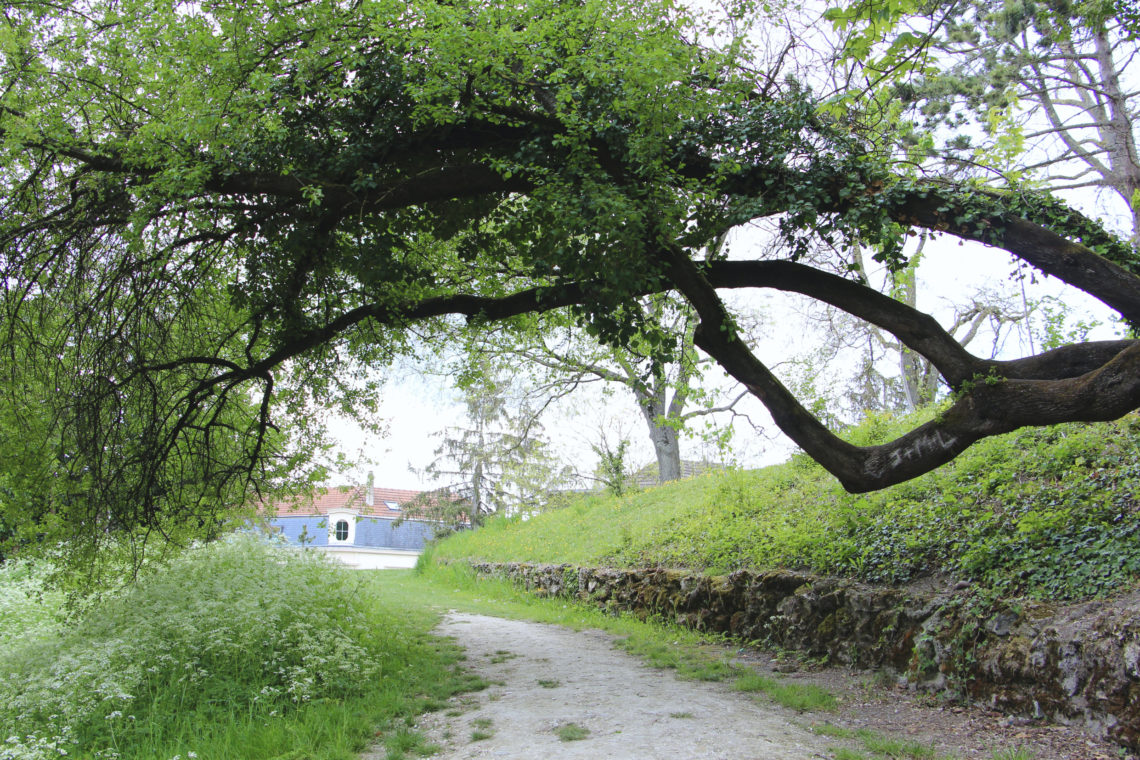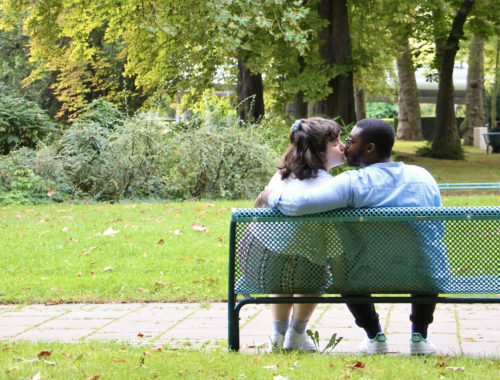
Reasons We Chose to Study Law and Logistics in France
Law and Logistics may not be the first fields that come to mind when you think about studying in France. How and why did Jalen and I ultimately decide to pursue degrees in these subjects as American students in France? Read on to find out!
Directly enrolling in a French institution of higher education is a pathway available to motivated individuals looking to study abroad. For some students, studying at a French university is a short-term project, while others use their degree in France as a springboard for living in France on the long-term.
According to Campus France’s latest numbers, in the 2019-2020 academic year, there were 370,052 foreign students studying in France, with only 6,686 of those being American students. As two members of this small percentage, we’re plugged into the online community of American students in France.
Many prospective or current American students in France are interested in attending programs with an obvious link to their identities as anglophones and to their interest in French language and culture. Additionally, it’s important for many American students to ensure that their degrees will be useful should they return to the United States after their time in France.
Therefore, some of the most popular programs that we see Americans pursuing include Translation, English Language Education, Francophone Studies, Anglophone Studies, Applied Foreign Languages, Communications, International Business, Public Health, and, more generally, degrees taught exclusively in English.
Though these degrees fit well with the profiles we described, Jalen and I had slightly different criteria, leading to our choices in programs that are less typical among American students in France. In other words, we looked past our surface-level identities as anglophones and Francophiles and really investigated what fields would interest and fulfill us no matter where life takes us. We thus strived to incorporate our English language capabilities and our wish to live in France with our individual callings as we searched and applied for master’s degree programs in France.
Our double majors in French and International Affairs during our undergraduate degrees opened our minds and prepared us for a variety of potential career paths. After a year of teaching English with the Teaching Assistant Program in France (TAPIF), we were quite certain that teaching wasn’t for us. From there, Jalen and I engaged in a lot of research and self-reflection to finally arrive at our choices to study Logistics and Public Law.
Jalen specifically considered four factors that led him to his current program. First of all, he realized that what he most enjoyed in all of his professional experiences were the tasks that contained elements of logistics, such as tracking stock levels and order preparation. Secondly, as he was far more drawn to the business and economics classes that we took as part of our undergraduate degrees than to the political science classes, he knew he wanted to further his education in a business field. He also hoped to incorporate his interest in languages like French, Spanish, and Italian into his future. A career in logistics on an international scale will likely allow him to use a multitude of languages in the work place – In fact, he’s already experienced this multilingual aspect at his internship this semester. Finally, he was attracted to the versatility of careers that a degree in logistics generates.
As for me, contrary to Jalen’s experience, I didn’t really enjoy the business-oriented coursework in undergrad and knew that I didn’t want a future in the business world. However, I loved studying international relations, logic, political science, literature, foreign policy, and philosophy, which are all subjects that can make up a law degree. The intellectual rigor involved with studying law as well as the fact that it combines practical knowledge with abstract thinking excited me. Additionally, the breadth of subjects included in law programs meant that I could gain extensive knowledge in many fields that interest me – I’ve already taken courses about environmental law, political theory, international criminal law, agri-food law, and more! Lastly, like Jalen, the fact that a degree in law can lead to a variety of different careers appealed to me.
All in all, many factors contributed to us ultimately choosing to pursue degrees that fall outside the norm when compared to other American students in France. Thus far, we are happy with our programs and excited to see what the future holds as we continue to gain expertise in our fields.
If you have any questions or want to know more, leave us a comment!
Check out our video about why you should study in France!
You May Also Like

Applying for a Master’s Degree in France: How to Know If You’ll Be Accepted
November 18, 2020
Studying in France as Americans: One Calendar Year in the Books
September 15, 2021


4 Comments
Alexis Ramos
Hello, Jalen and Maria!
First, thank you for all of the amazing content you guys push out week after week. It really is much appreciated by someone who wants to follow a similar path as both of you.
My question is towards Maria. I am interested in pursuing law and I was wondering if your end goal is to become a lawyer in France. If so, do you know the process of becoming a lawyer in France being American?
Thanks!
Alexis
Jalen & Maria
Hello Alexis. We both thank you for being here!
Becoming a lawyer in France is not a goal for me at this point in time. However, I will point you to this link that very briefly sums up the possible routes foreigners can take to become a lawyer in France. I wish you good luck and will be happy to answer any other questions about pursuing law in France that you may have. Take care!
Hunter
Hey there,
First of all I wanted to thank you for taking the time to record your experience and put all of this information on your website. It’s such a teasure trove of great info that, as someone who’s been doing a lot of research on the topic, can be hard to find without going around and emailing various departments at Campus France, individual universities… and even then there’s so much that only the ‘daily life’ of studying in France can teach you.
Anyway, I don’t know if you remember me but I was the one that messaged you guys on Instagram and asked about your thoughts on attempting to get into a Computer Science Masters with a Philosophy Bachelors. Since then I’ve opened up my thinking a bit past that, to where I’m starting to look at some other fields to see if I can find something that can suit me well enough and I can find a job in afterwards.
It’s been hard to find extensive information on people who’ve gone to do studies in France and found jobs afterwards in non-tech fields. One of the fields I was considering is Urban Planning, but discussing with someone in Reddit who claims to know people in the Urban Planning field in Europe – they say that it’s a bit of a fool’s errand, as that positions in that field requires a lot of local knowledge that I’ll simply not have access to even after two years in a single city, or to get access to a job. Also, since many of those kinds of jobs tend to be public sector, oftentimes foreigners won’t be able to even apply to them, although looking online there seems to be nothing legally stopping governments from hiring foreigners, although it’s easy to imagine how this might be the sort of de facto way things go.
So for myself and for many others out there – the #1 goal is to be able to find a way to stay in France afterwards. Find a job, stick around long enough to become a citizen at the very least, etc. I was hoping you might speak a little bit more to how you were able to choose programs and feel confident that you would be able to find a job after. Multi-lingual masters degree graduate in Logistics I can easily see being hirable straight out the gate, but would you mind sharing a little bit more about your thoughts on Maria’s Masters in Public Law: European Integration and Global Governance? Going into that, how confident were you that you would be able to find a job afterward? Did you already know what jobs / companies / organizations you were wanting to apply to before getting started? Did you cater your research and projects in the Masters towards that end?
Long story short, I graduated with a Bachelors in Philosophy in 2018, and since then did the Working Holiday visa in Australia for 9 months, taught English in Vietnam for 6 months, volunteered with a street-theatre festival in Frankfurt for 4 months, and the rest is mostly Covid or working in audio tech or hospitality. I’m done with the traveling chapter of my life and looking forward to the career one, and France seems like a great place for that especially seeing as I’m pretty good at French. I’ve been teaching myself how to code for the last couple of years and enjoy putting some little projects of my own together. I have a DELF B2 and will try to hit C1 in September with the TCF.
That being said, some of the programs I’ve been thinking about are International Relations, Law, Urban Planning… things that are general enough where I could reasonably getted admitted into a university with my credentials. Are there other ones that I should consider looking into? I enjoy analytical work, the kind you’ll find in coding for instance, but also love working on a team towards a common goal like I did in backstage theatre. So it seems like there are some general fields that could be a good fit for the work itself, but my biggest anxiety comes from coming out of the other side of the Masters degree program with some hope of actually being hired.
In summary: I have a Philosophy’s Bachelor, DELF B2, varying international experiences, and am trying to figure out programs that I can both reasonably expect to be accepted into with this background, and that will also give me reasonably good job prospects after I graduate. Does International Relations or Law or Urban Planning fit that description? Have you met other people graduating with Masters in fields that are traditionally considered to have ‘bad’ job prospects but still find a job? Am I limiting myself too much in my thinking for the kinds of programs that I could reasonably be accepted into? When you chose your own programs, how were you able to go into them confident that it wouldn’t be an issue once you were on the other side?
Thanks,
Hunter
Jalen & Maria
Hello, we are glad that recording our experiences has proved to be a helpful resource for you! We do remember your message. You have broached a great number of topics in this comment, so we’ll do our best to respond to everything that we can.
We have no expertise in Urban Planning. However, it is often possible for foreigners to work in the public sector. Some public sector jobs are reserved for only French nationals, some for French and EU nationals, and some are open to anyone. I (Maria) work in the public sector myself. Typically, if a job has a nationality requirement, the job posting will indicate this.
A lot more than just employability played into the choices that we made when it came to our fields of study. We spent years during our undergraduate degrees reflecting on career paths that would fit our personalities, ambitions, and skills. We did, of course, consider the viability of getting a job in France in our respective domains, but our thinking was much closer to “these sectors seem feasible for us to find work in” than “we are positive that we’ll get jobs in France in these sectors.” Given that the job market is in constant flux, we don’t feel that anyone can be 100% sure that any degree will guarantee them a job in France. After doing research on International Relations and Logistics careers, we came to the conclusion that we had some chance of working in France with master’s degrees in these fields, but still had to live with a great amount of uncertainty! We chose sectors that we thought we would like and could be competitive in, bet on ourselves, and it worked.
As far as my degree in Public Law: European Integration and Global Governance in specific, I did indeed have ideas of what jobs/companies/organizations I might work for. By the by, I even had to answer that question in my Campus France interview! I chose my degree in part because it wouldn’t limit me to one type of job, as I am interested in multilateral cooperation, international education, humanitarian projects, human rights, and environmental protection. To reflect these interests, I wrote my master’s thesis in one of these areas, did my internship in another, and my in-class projects covered the rest. Again, I find it difficult to say that I was very confident, but I felt that I had a fighting chance.
When it comes to which field you should choose, we’re not sure how much help we can be. We aren’t career advisors, and we made our decisions based on our undergraduate coursework, personal convictions, and internet research about the job market. Giving you advice about which programs you would succeed in and which would more likely lead you to a job in France just goes beyond what we can answer as two people pulling from our own personal experiences. We suggest you weigh your career interests as well as the most recent job market projections, while acknowledging that uncertainty (and even a certain level of discomfort) is normal. As much as we wish that there was a way to guarantee employment in France after a master’s degree, there are just too many factors at play to be sure.
We don’t have any real-life examples of people who chose master’s in fields that aren’t necessarily in-demand and ended up finding employment in France. However, to be frank, we don’t have many examples of people who stayed after their master’s degrees period. The most common success stories we hear of are people who took the English-teaching route.
For our thoughts about how to estimate which kinds of programs may accept or reject you, you can read our article on the topic here.
We hope this helps a little and wish you luck as you make some important decisions!